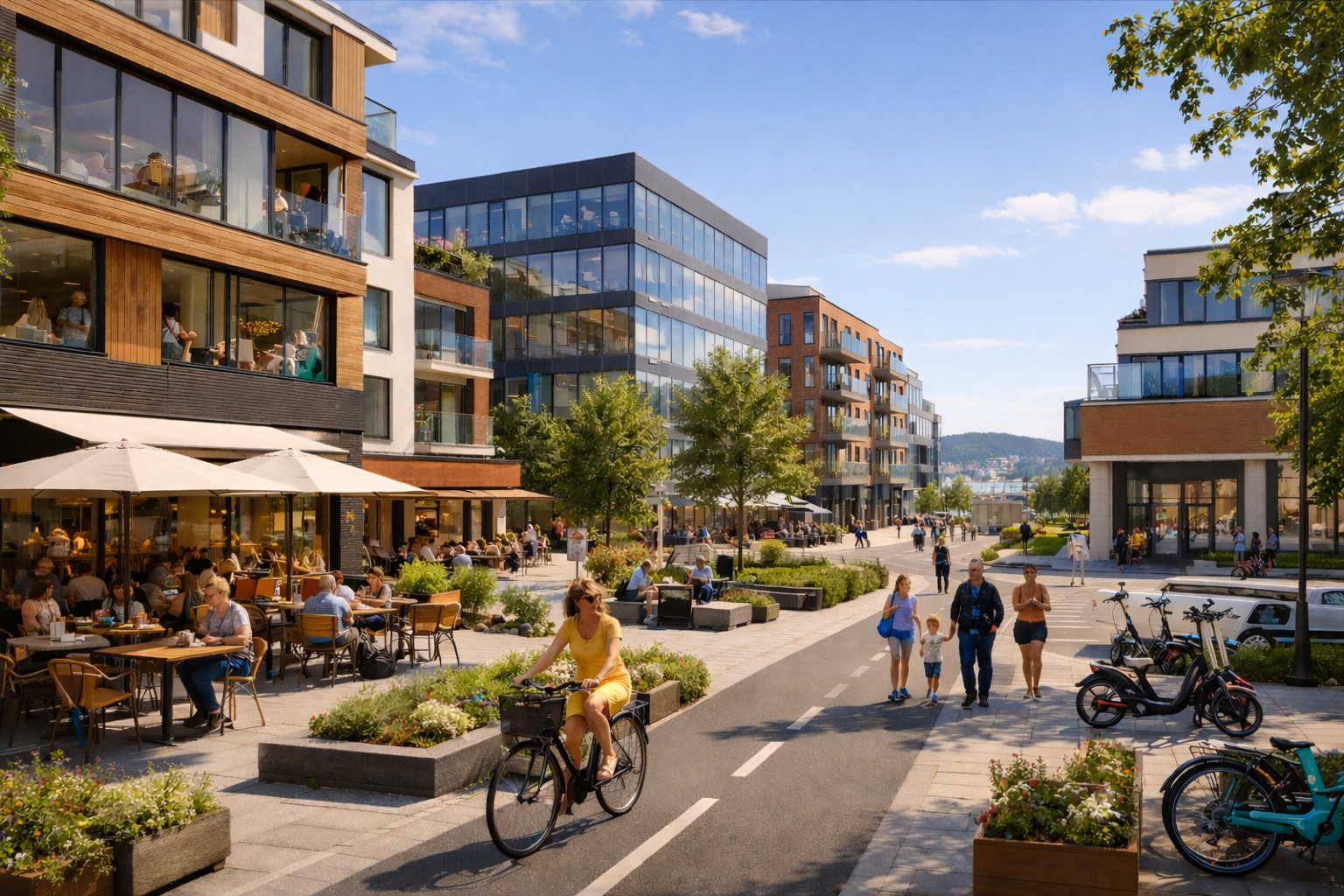
The 15 minute city describes an urban structure where daily needs such as housing, work, education, healthcare, and recreation are accessible within a short walk or cycle, reducing dependence on long commutes and centralized infrastructure.
It prioritizes proximity, mixed use density, and local services to support everyday life at a human scale while lowering environmental load and improving social cohesion.


Our platform connects architecture, recycled steel, standardized components, ESG values, energy solutions, and a well regarded industrial supply chain into a unified operational flow for delivery and deployment.

Our research focuses on developing structural systems, recycled steel applications, energy integration, and performance validation, ensuring that ideas are translated into buildable, efficient, and scalable solutions.
EdenRise’s Brilliance provides a system in which façades can change their visual identity in real time through materials and sensors integrated into the building envelope, measuring light positions and geometry.
To our R&D